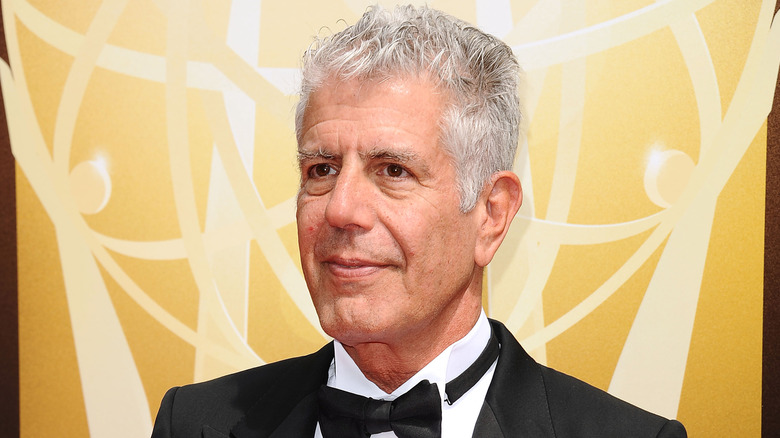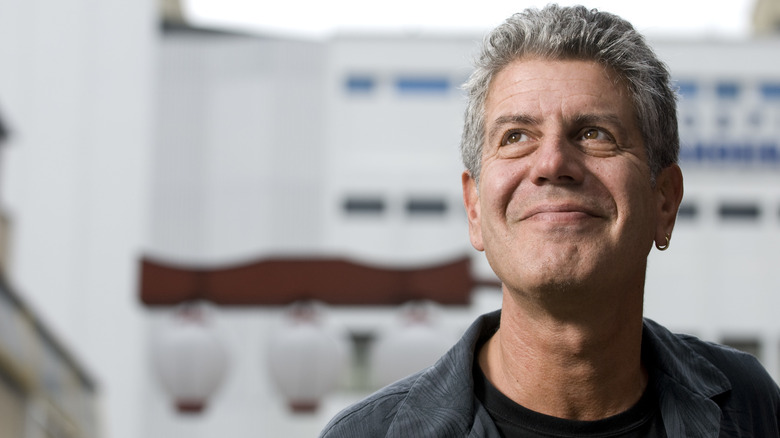Why Anthony Bourdain Openly Hated The James Beard Foundation
Anthony Bourdain, the late chef, author, and provocateur of food culture, never shied away from criticizing food trends or institutions he viewed as ridiculous and self-congratulatory. Among the most consistent targets of his scorn were the James Beard Awards, the so-called "Oscars of the food world." Though he was a frequent nominee and won a few times too, Bourdain quickly became one of the awards' most vocal critics, viewing them as a display of the culinary world's worst habits (insularity and performative virtue, to name a few).
In a 2011 interview with Eater, Bourdain spared no words on the homogeneity of the awards ceremony, stating, "Rarely can one see so many white people in one room. It really does look like the Republican National Convention or the last Wallace campaign." He emphasized that the foundation needed to support the actual workforce of the industry — which is largely made up of people of color, especially Hispanic and Latino folks — suggesting they provide resources like free paralegal advice for immigrant workers.
He also compared the James Beard Awards to a "self-congratulatory goat rodeo/awards ceremony/chef shakedown" on his "No Reservations" blog, expressing skepticism about their authenticity and relevance. His disdain extended to the broader food writing community as well, which he accused of prioritizing fluff pieces over actual issues. For Bourdain, the awards represented more than just bad taste and bloated egos; they reinforced a food media system that favored freebies and chefs from major cities. He pooh-poohed that excellence in food could ever be judged by a panel of people who rarely experienced the realities of underpaid, overworked kitchen labor.
Anthony Bourdain championed the underrepresented
Anthony Bourdain's take on the James Beard Awards wasn't mere contrarianism; his frustration was rooted in his own struggles and experience. As a former dishwasher, line cook, and executive chef, he knew the grind intimately: what it meant to work double shifts hungover and sick, doing heavy food prep in the early hours, or making rent (and buying drugs) on a cook's wage. The idea of winning an award based on media buzz or restaurant public relations felt like a betrayal of what cooking was fundamentally about: craft, sweat, and humility.
Even when Bourdain wasn't in front of a camera, his critique extended beyond just the culinary world. His dislike for institutions that gatekeep culture was part of a broader philosophy. He lived to champion the underdogs, spotlighting family-run noodle shops in Vietnam and war zone food vendors in Lebanon. His work sought to expand the definition of food writing beyond white tablecloth establishments and toward a more inclusive, democratic view of culinary culture.
In the end, Bourdain's critique of the James Beard Awards wasn't about tearing down elitism for the heck of it; it was a demand for honesty and integrity in an industry he loved fiercely. His disapproval was rooted in real compassion: for the cooks in the trenches, for the immigrant-run kitchens, and for the food stories that rarely got told. By calling out what he saw as hollow spectacle, Bourdain left us with a legacy that has helped steer food culture closer to the authenticity he himself pursued.

